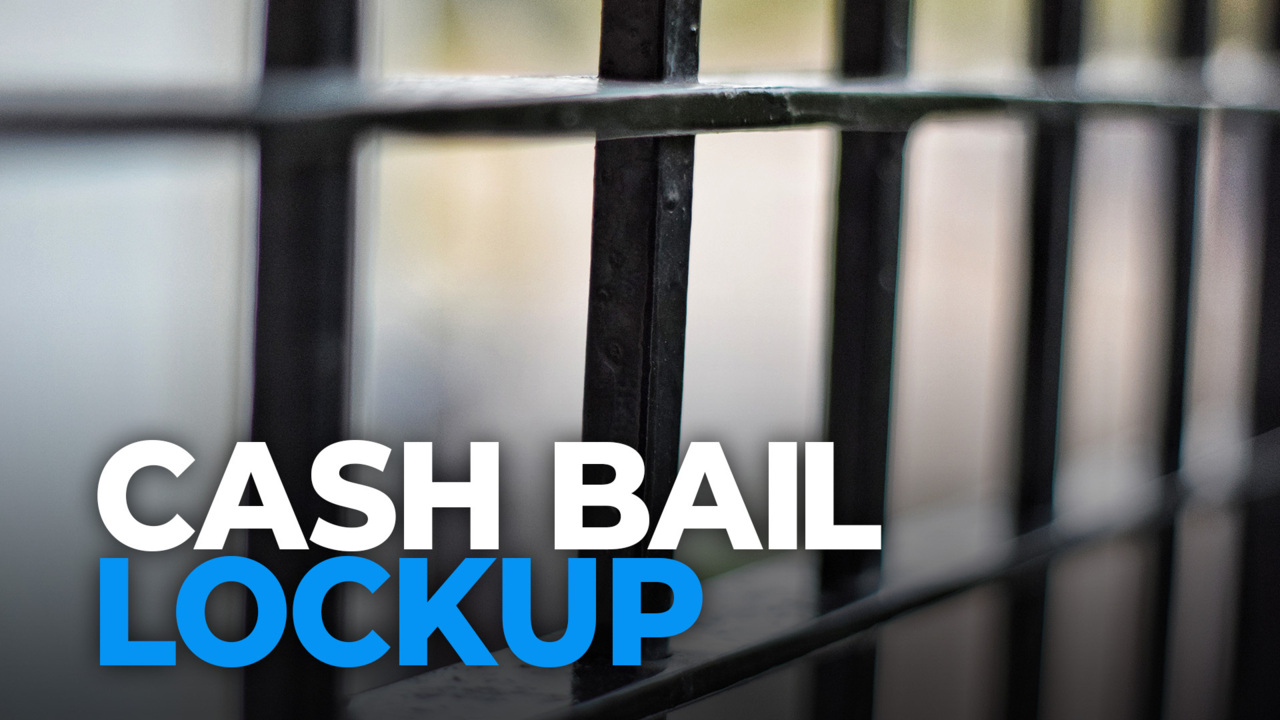
SHANNON LONGWORTH: ON JANUARY 1ST, ILLINOIS WILL OFFICIALLY GET RID OF ITS CASH BAIL SYSTEM.
ACCORDING TO THE SAFE-T ACT, IF SOMEONE IS ARRESTED, A JUDGE WILL DECIDE WHETHER THE ACCUSED AWAITS TRIAL IN JAIL OR OUTSIDE IT.
IT WILL NO LONGER DEPEND ON WHETHER THEY CAN AFFORD TO POST BAIL OR NOT. THE CURRENT SYSTEM HAS TIED FINANCES TO FREEDOM, CONTRIBUTING TO ECONOMIC DISPARITY IN THE CRIMINAL JUSTICE SYSTEM.
BENJAMIN RUDDELL: “WE ARE EXTREMELY PROUD THAT ILLINOIS WILL BE THE FIRST STATE IN THE COUNTRY TO COMPLETELY ELIMINATE THIS ARCHAIC PRACTICE.”
LONGWORTH: BENJAMIN RUDDELL WORKS FOR THE ACLU OF ILLINOIS, WHICH HAS SUPPORTED THE SAFE-T ACT.
RUDDELL: “IN A LEGAL SYSTEM IN WHICH PEOPLE ACCUSED OF CRIMES ARE SUPPOSED TO BE PRESUMED INNOCENT UNTIL PROVEN GUILTY, THAT PEOPLE ARE STUCK IN JAIL FOR DAYS, WEEKS, MONTHS, AND SOMETIMES EVEN YEARS AT A TIME, NOT BECAUSE OF ANY THREAT TO ANOTHER PERSON THAT THEY’VE BEEN FOUND TO POSE, NOT BECAUSE THEY ARE LIKELY TO FLEE FROM PROSECUTION, BUT SIMPLY BECAUSE THEY CANNOT AFFORD TO PAY AN ARBITRARY AMOUNT OF MONEY THAT’S BEEN THE PRICE TAG THAT’S BEEN SET ON THEIR FREEDOM.”
LONGWORTH: RESEARCH POINTS TO PRETRIAL DETENTION HAVING DETRIMENTAL EFFECTS.
STATISTICALLY, THE LONGER A PERSON IS IN JAIL PRETRIAL, THE MORE LIKELY THEY ARE TO BE REARRESTED LATER ON, ACCORDING TO A RECENT CORE CORRECTIONAL SOLUTIONS STUDY.
RUDDELL: “IT DOESN’T TAKE LONG FOR PEOPLE TO BEGIN SUFFERING NEGATIVE CONSEQUENCES LIKE JOB LOSS, YOU CAN JUST IMAGINE, IF YOU, YOU KNOW, IF YOU WERE ARRESTED AND HELD IN JAIL, AND YOU DIDN’T SHOW UP AT YOUR JOB THE NEXT DAY, YOU PROBABLY WOULDN’T HAVE THAT JOB FOR VERY LONG.”
LONGWORTH: WHILE PROPONENTS SAY ELIMINATING CASH BAIL IS A SOLUTION…JEFFREY CLAYTON, THE EXECUTIVE DIRECTOR OF THE AMERICAN BAIL COALITION, SAYS IT’S UNCONSTITUTIONAL.
JEFFREY CLAYTON: “IT’S A QUESTION OF WHETHER WE WANT PEOPLE TO HAVE AT LEAST THE OPPORTUNITY TO GET OUT OR WHETHER WE’RE JUST GOING TO CONDEMN PEOPLE BASED ON THEIR FUTURE BEHAVIOR AND SAY, ‘WE JUST THINK THEY’RE TOO DANGEROUS TO LET OUT.’ THAT’S NEVER BEEN REALLY THE CONSTITUTIONAL TRADITION IN THE UNITED STATES UNTIL PROBABLY THE 1980S DURING THE REAGAN ADMINISTRATION.”
LONGWORTH: ACCORDING TO SECTION 9 OF ILLINOIS’S BILL OF RIGHTS, “ALL PERSONS SHALL BE BAILABLE BY SUFFICIENT SURETIES,” WITH EXCEPTIONS.
CASH BAIL IS ONE KIND OF SURETY, A GUARANTEE THAT THE ACCUSED SHOWS UP FOR TRIAL–IF ONLY TO GET THEIR BAIL MONEY BACK. THOUGH THERE ARE MANY ITERATIONS OF THAT IF SOMEONE DOESN’T HAVE THE CASH ON HAND. FOR EXAMPLE, WITH BAIL COLLATERAL, SOMEONE CAN OFFER THEIR PROPERTY IN PLACE OF MONEY.
JEFFREY CLAYTON: “FOR THE AVERAGE PERSON, YOU WANT THE RIGHT TO BAIL. YOU DON’T WANT THE STATE TO SAY WE JUST DON’T LIKE JEFF, AND HE’S GOING TO JAIL LIKE WE DON’T BELIEVE IN THAT. “
LONGWORTH: OTHER CRITICS–INCLUDING LEADERS IN LAW ENFORCEMENT–HAVE SPECULATED ABOUT THE CORRELATION BETWEEN BAIL REFORM AND CRIME RATES. THEY WARN ABOUT THE RISK OF RELEASING PEOPLE WHO WILL BECOME REPEAT OFFENDERS BECAUSE A JUDGE DECIDES NOT TO DETAIN THEM BEFORE TRIAL..
DERMOT SHEA: “WE CANNOT BE JUST CHASING OUR TAIL. CATCH AND RELEASE, CATCH AND RELEASE.”
LONGWORTH: WHILE CRIME DID INCREASE IN NEW YORK SINCE THE STATE’S BAIL REFORM MEASURE PASSED IN 2019, THE CONNECTION IS NOT CLEAR.
THE NEW YORK CITY COMPTROLLER POINTED OUT THAT “THE SHARE OF RELEASED PEOPLE AWAITING TRIAL WHO ARE REARRESTED REMAINED ROUGHLY THE SAME BEFORE AND AFTER IMPLEMENTATION OF BAIL REFORMS,” ACCORDING TO STATE DATA.
ALSO, THE CRIME SPIKE WASN’T SPECIFIC TO STATES WITH BAIL REFORM. IT WAS NATIONWIDE–DURING A PANDEMIC.
ILLINOIS HAS NOW GONE FURTHER THAN ANY OTHER STATE IN REMOVING PERSONAL WEALTH FROM PRETRIAL PROCEDURE.






